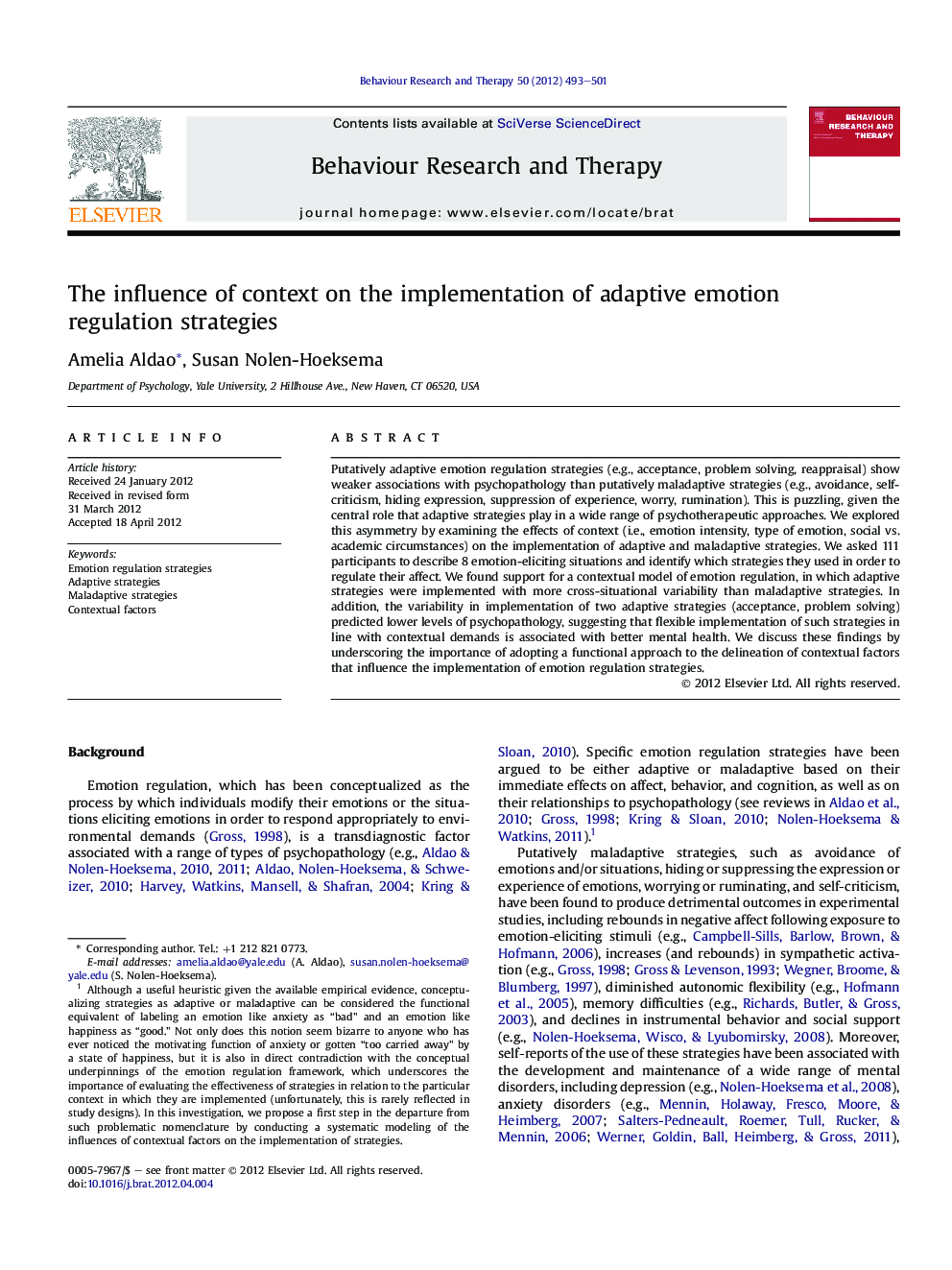| Article ID | Journal | Published Year | Pages | File Type |
|---|---|---|---|---|
| 901942 | Behaviour Research and Therapy | 2012 | 9 Pages |
Putatively adaptive emotion regulation strategies (e.g., acceptance, problem solving, reappraisal) show weaker associations with psychopathology than putatively maladaptive strategies (e.g., avoidance, self-criticism, hiding expression, suppression of experience, worry, rumination). This is puzzling, given the central role that adaptive strategies play in a wide range of psychotherapeutic approaches. We explored this asymmetry by examining the effects of context (i.e., emotion intensity, type of emotion, social vs. academic circumstances) on the implementation of adaptive and maladaptive strategies. We asked 111 participants to describe 8 emotion-eliciting situations and identify which strategies they used in order to regulate their affect. We found support for a contextual model of emotion regulation, in which adaptive strategies were implemented with more cross-situational variability than maladaptive strategies. In addition, the variability in implementation of two adaptive strategies (acceptance, problem solving) predicted lower levels of psychopathology, suggesting that flexible implementation of such strategies in line with contextual demands is associated with better mental health. We discuss these findings by underscoring the importance of adopting a functional approach to the delineation of contextual factors that influence the implementation of emotion regulation strategies.
► Adaptive strategies have weaker associations with psychopathology than maladaptive strategies. ► We showed that implementation of adaptive strategies was more variable across situations. ► Such variability negatively predicted symptoms, supporting a flexibility model. ► Findings underscore the importance of a contextual approach.
